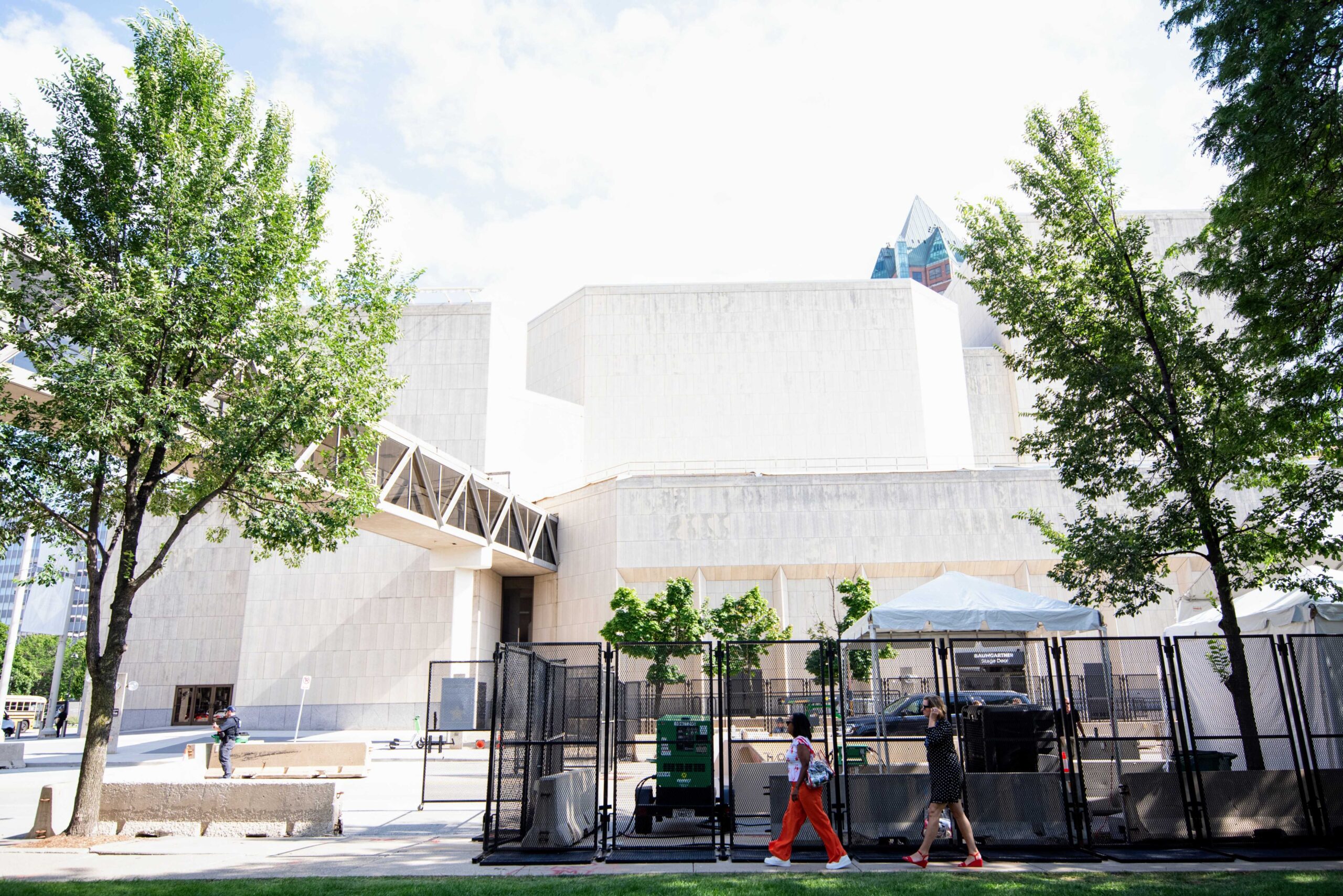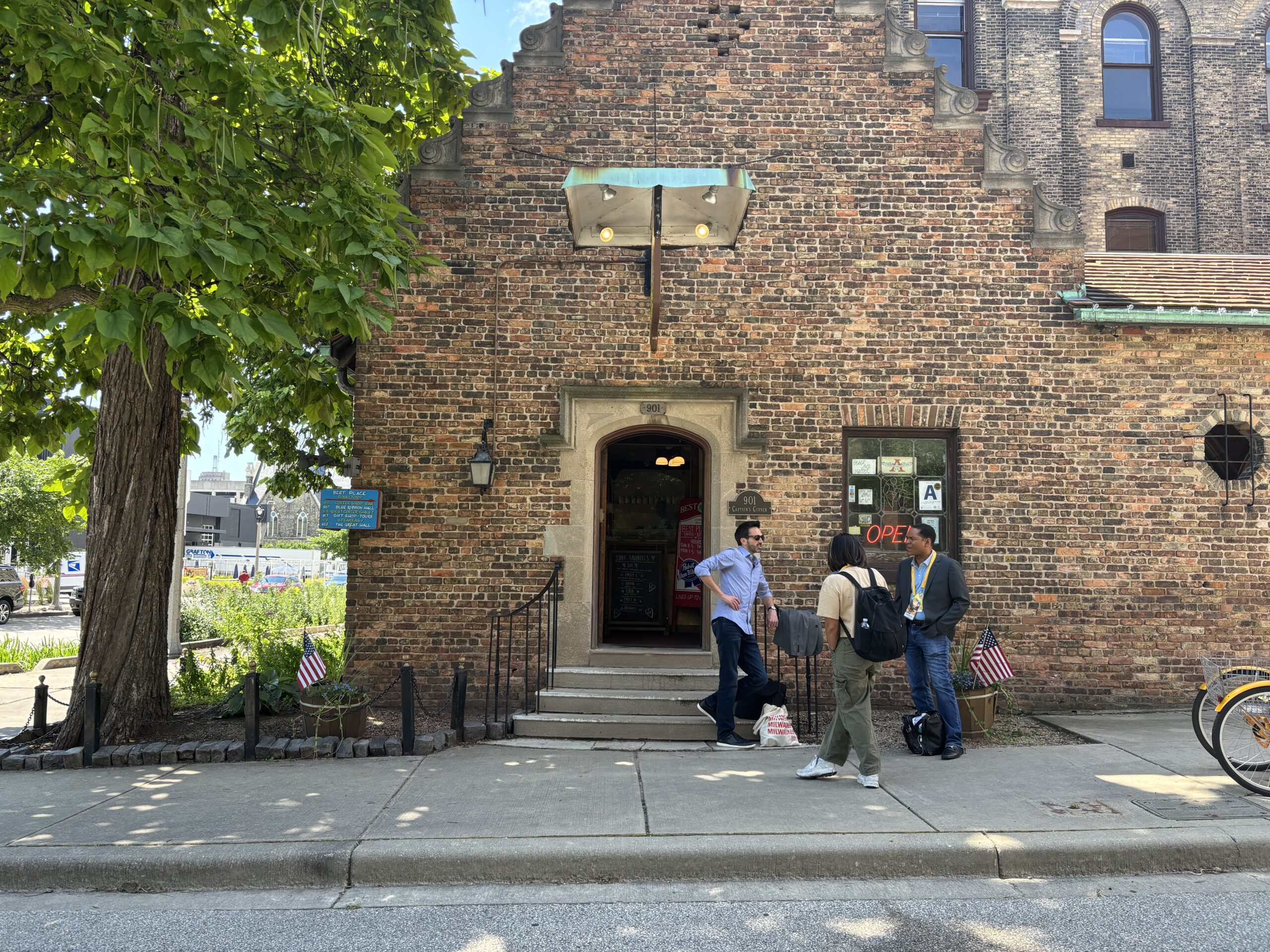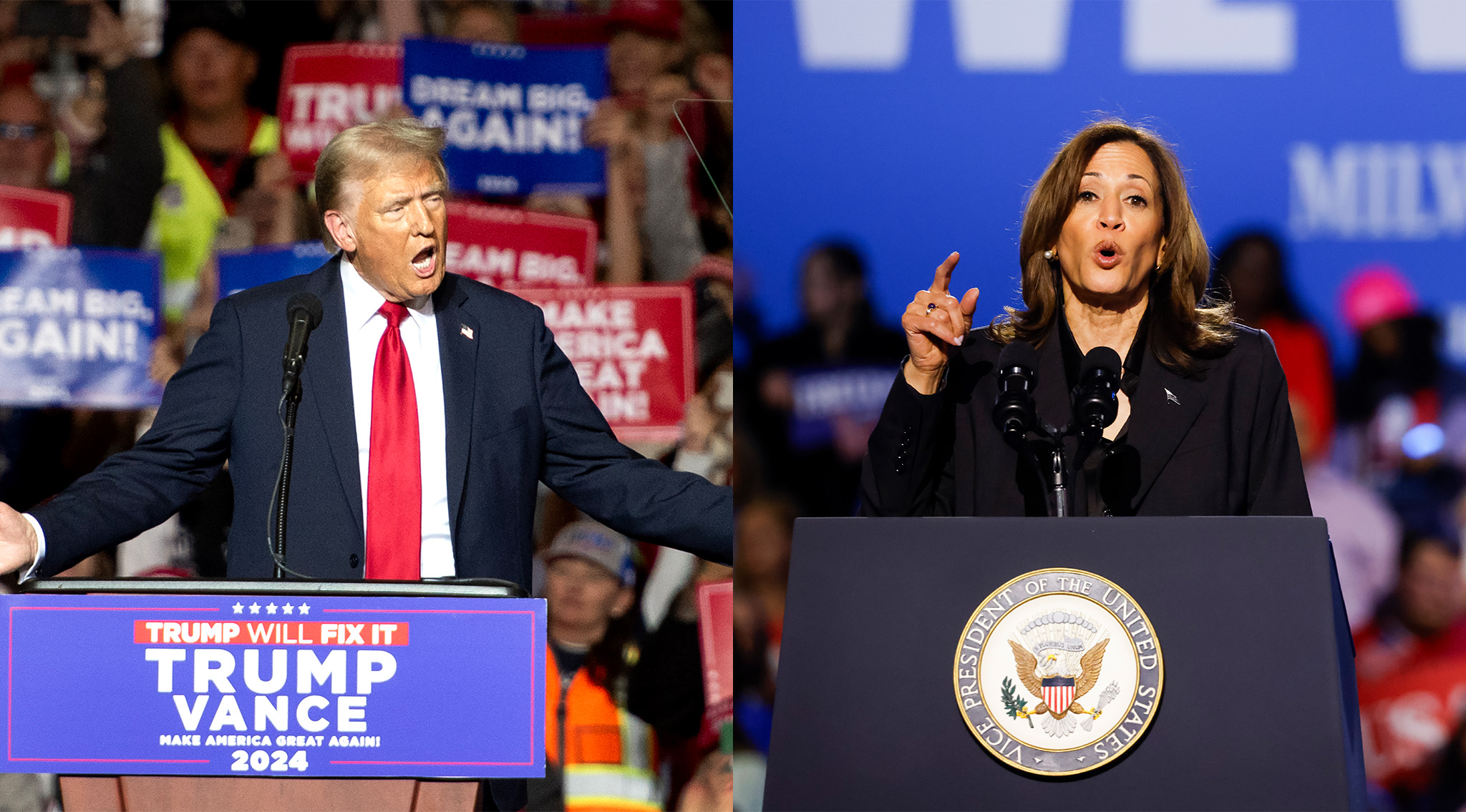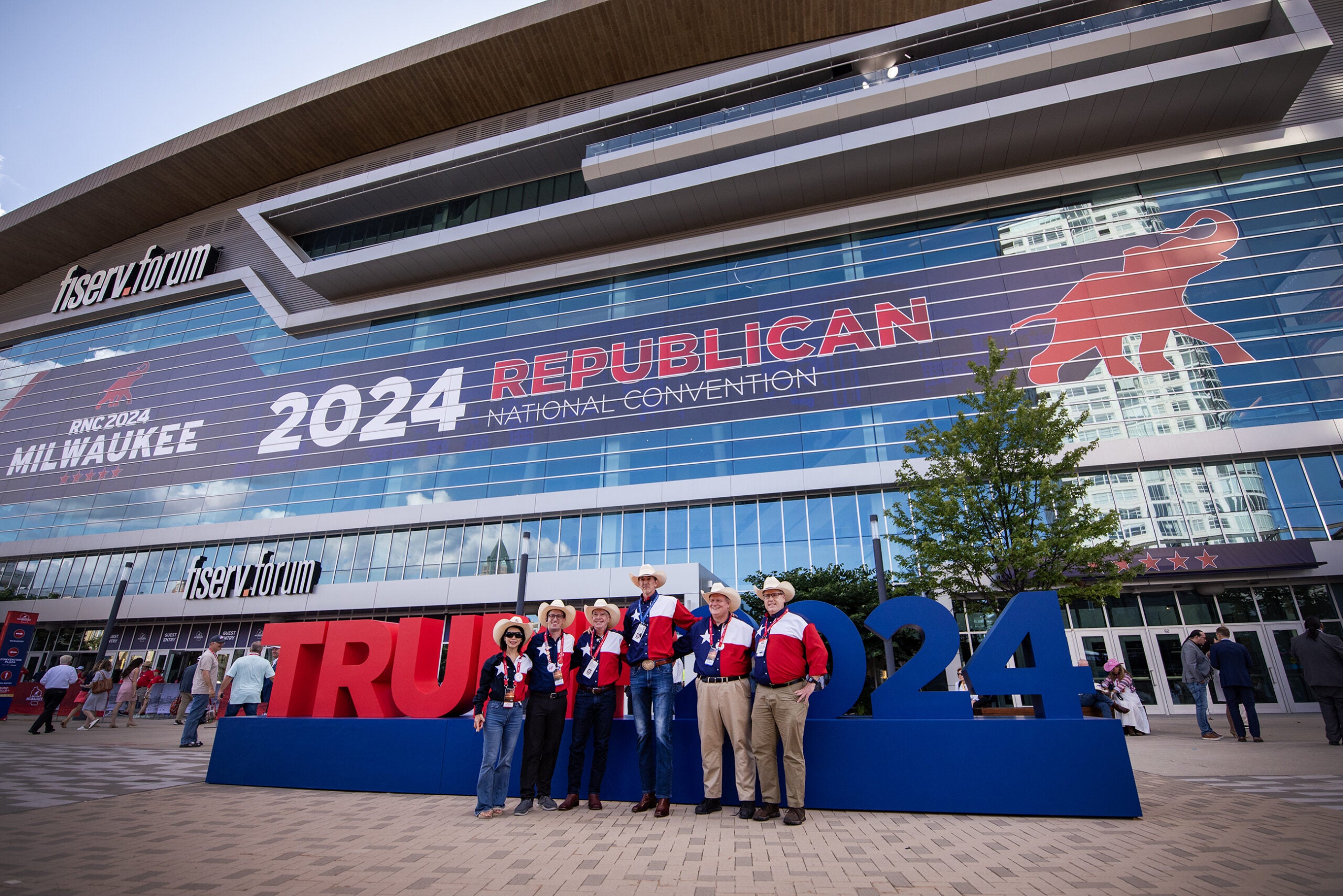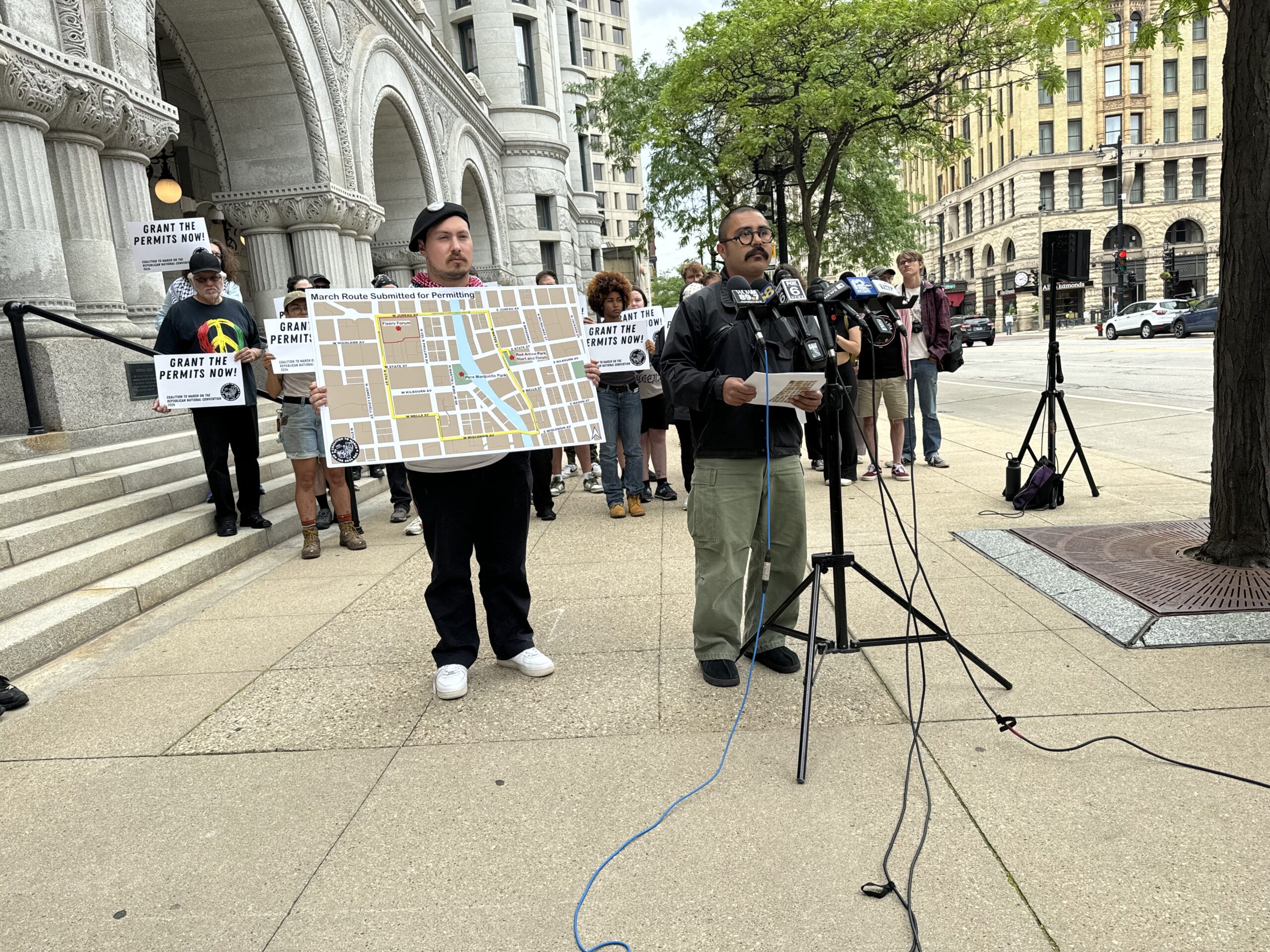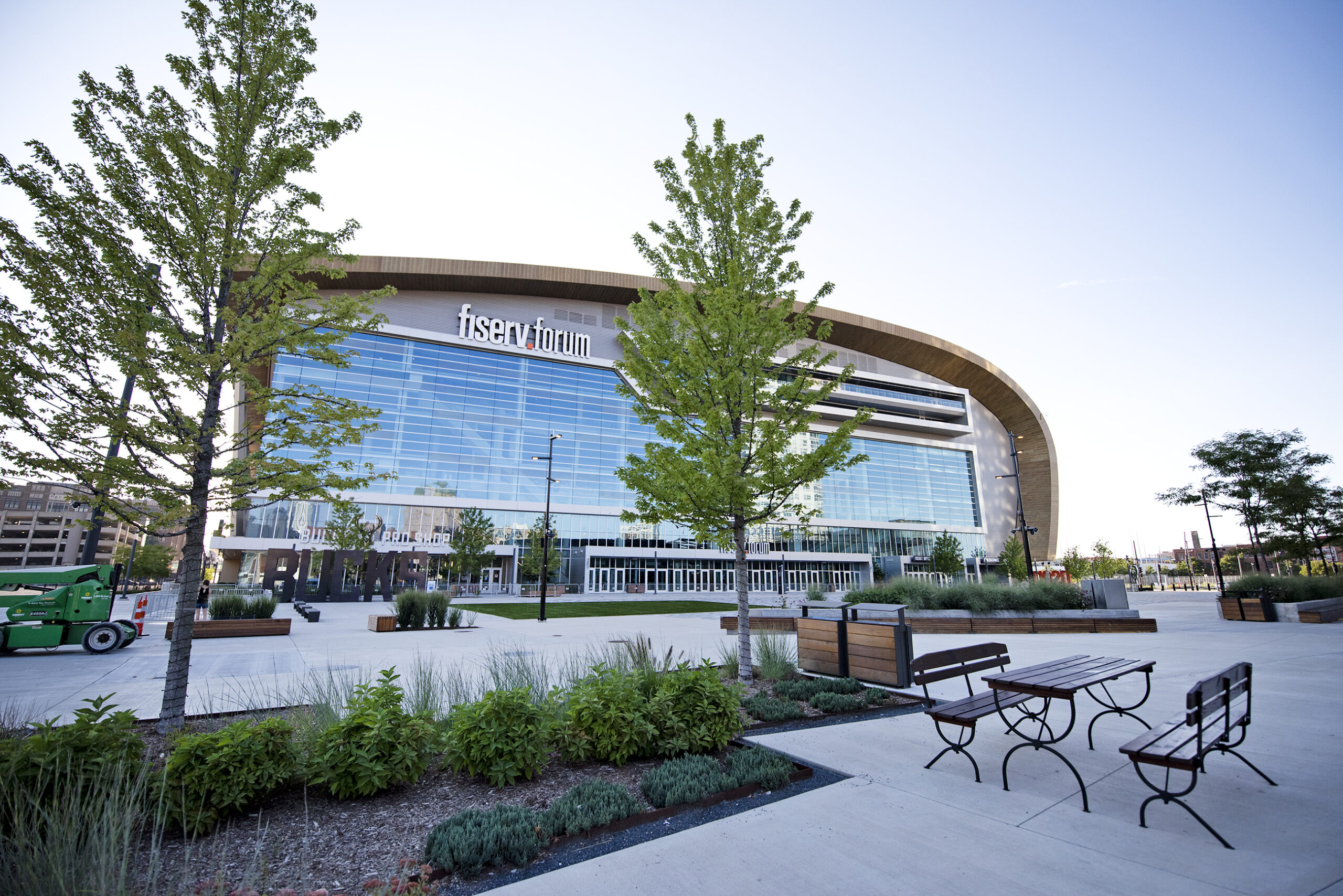Usually, it takes James Gilbertson about 12 minutes to get to his job at a restaurant in downtown Milwaukee.
But during the Republican National Convention this week, his commute has turned into a strategic challenge that includes carpooling, remote parking, and a 35-minute walk navigating a maze of security fences and checkpoints.
The comprehensive security plan for the convention was months in the making. It’s offering comfort to people attending the RNC, especially after the assassination attempt on former President Donald Trump.
Stay informed on the latest news
Sign up for WPR’s email newsletter.
But many locals said navigating the security perimeter, including road closures, vehicle searches, parking restrictions and metal detectors, took some getting used to.
I’m just walking to the grocery store. Walking wherever I can, because it just seems to be easier at this point.
Ryan Kusch, Milwaukee resident
There are two different perimeters, each with different levels of security.
At the vehicle screening perimeter, or “soft” perimeter, pedestrians and bicyclists can move freely, but cars have to be inspected at designated points.
The pedestrian restricted perimeter, or “hard” perimeter, can only be accessed by convention attendees, volunteers and members of the media who received specialized credentials beforehand. These entrances, which are spaced several blocks apart, also require additional security screenings.
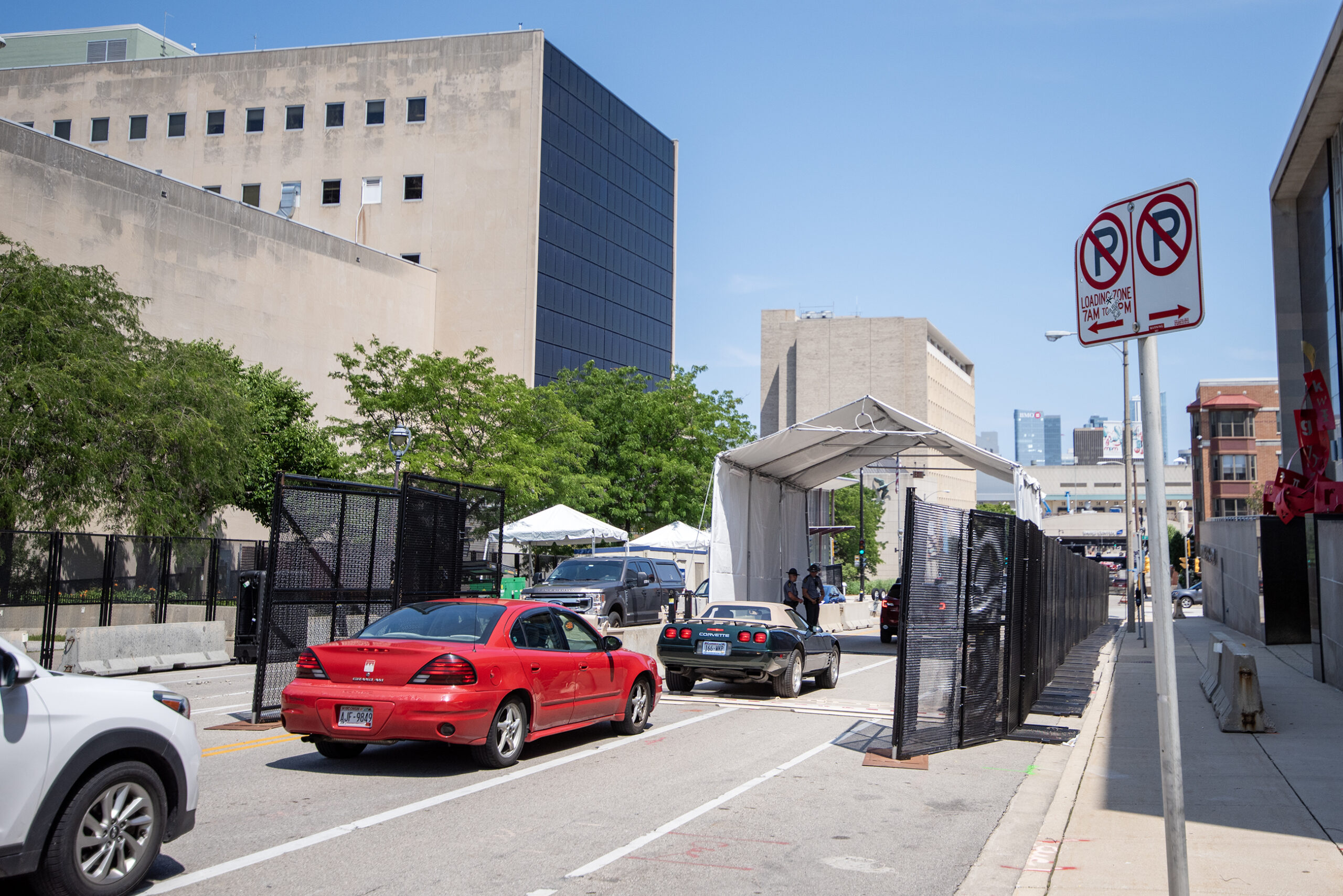
Fencing that is about 8-feet-high, as well as barricades, snake around each perimeter. Without a map or extensive practice, it can take what feels like forever just to find an entry or exit point.
Gilbertson, who works in the soft perimeter, regularly got off work after 4 a.m. during the week of the convention.
“It’s also awfully inconvenient to work a 14 hour shift, and then have to walk another 35 minutes back to my car after,” Gilbertson said.
Other workers in the service industry are taking a shuttle from American Family Field. Yellow school buses running every five to 10 minutes shuttle them to and from work.
Employees, told by management to avoid speaking to reporters during the RNC, said while their commute times have doubled, the shuttles are efficient and they appreciate having the option.
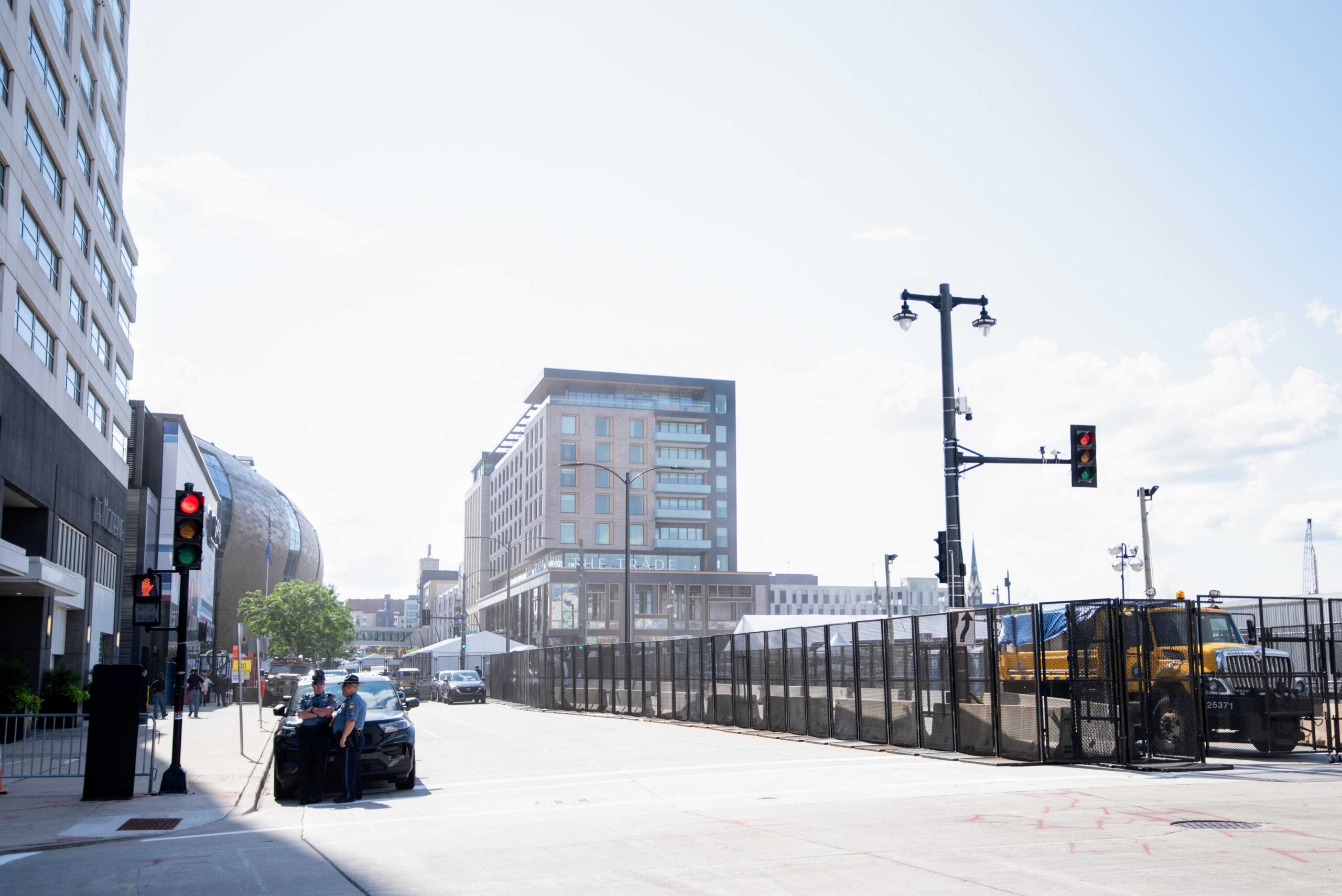
Inconvenient, but not life altering
Ryan Kusch lives in an apartment building within the soft security perimeter, an experience he said has been bizarre.
Kusch said he felt confined, but when he found alternate routes to his regular coffee shop and gym, life continued more or less as normal.
“I’m just walking to the grocery store. Walking wherever I can, because it just seems to be easier at this point,” Kusch said.
Calia Joslyn runs a dog walking business. She lives one block from the soft perimeter and reaching her clients has been time consuming and confusing. She’s walking the dogs further outside the city.
“I’m directly impacted by the RNC. So if I’m running a little bit late than our normal scheduled (pick up) time then a little bit of leeway is always appreciated,” Joslyn said.
She said the hardest part has been figuring out how to get around. Once she got the hang of it, she said, life got easier.
“It’s definitely been a learning curve, but I think I’ve figured it out,” Joslyn said.
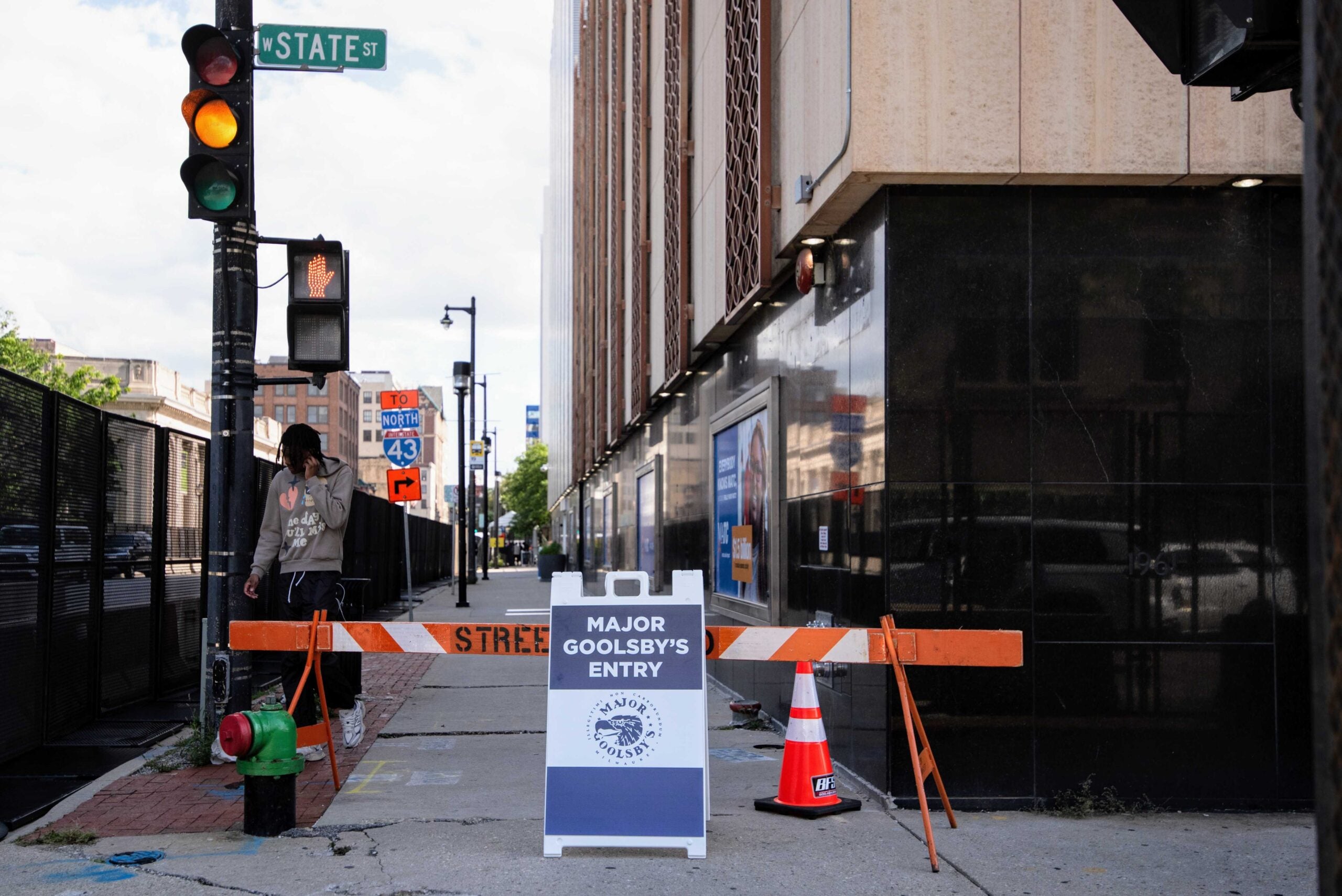
More hassle for less business
Gilbertson said he likes serving the police officers and secret service members who have been stopping by after their shifts, but the restaurant where he works isn’t as busy as he’d hoped.
“The hardest part is that locals can’t get here, our regulars can’t get here,” Gilbertson said.
Milwaukee Mayor Cavalier Johnson acknowledged slower-than-anticipated business during a press conference Wednesday morning. He is encouraging locals as well as convention goers to eat and shop downtown and in surrounding neighborhoods.
“That money is not necessarily flowing through every corner, every single corner of the economy,” Johnson said. “They deserve our patronage.”
Wisconsin Public Radio, © Copyright 2025, Board of Regents of the University of Wisconsin System and Wisconsin Educational Communications Board.
